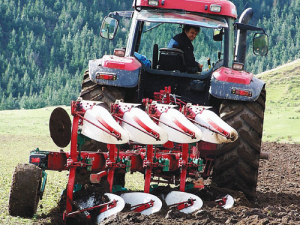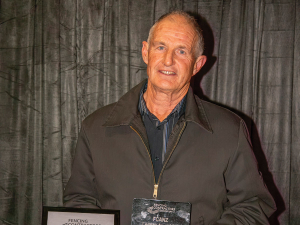Today, ploughing is still a preferred way to bury large amounts of surface material and leave a clean, level seedbed for the following crop.
And although minimal cultivation has become popular over the last 15 years – some farmers are having a re-think – the inversion achieved by ploughing is an efficient way to deal with pernicious weeds such as blackgrass.
Younger farmers may not be familiar with strange names like frogs, saddles, shins, skimmers and landsides, but most will know that the mouldboard is the key part of the plough that inverts the soil profile to leave the brown side pointing up. Mouldboards come in a wide range of profiles to suit soil depth or soil type, and are traditionally made of high quality, close-grain steel.
But for 25 years some companies have offered ‘plastic’ boards, largely aimed at very sticky soils. Recent developments in plastic and polymer technologies have renewed the interest in plastic mouldboards, with their distinct advantages over steel versions.
Plastic Repairs and Fabrication, of Whanganui, recently celebrated 10 years of making plastic boards. Its range offers replacements for European brands such as Kverneland, Overum, Kuhn and Lemkin, and for NZ-made plough brands such as Clough and Duncan -- often for older, forgotten styles.
The company says a key benefit of its polyethylene polymers is a significant weight saving over steel versions. While steel mouldboards typically weigh 22-25kg each, plastic ones may weigh only 4.5kg. Add this up on a 5-furrow, reversible that carries 10 mouldboards, and a saving of about 200kg can be made -- a lot of weight to be hanging a long way off the back of a tractor.
Plastic mouldboards also have a very low co-efficient of friction as soil passes over them, meaning less power is required. This offers fuel savings of 7-10L/hour which easily covers the slightly higher cost of these units.
Add to this high impact strength and excellent abrasion resistance, and plastic looks like it might offer a great alternative.
The manufacturer claims plastic will outlast steel by about 25%. “Our mouldboards are made in NZ for NZ conditions,” PRF’s Vaughan Dawson told Rural News.









